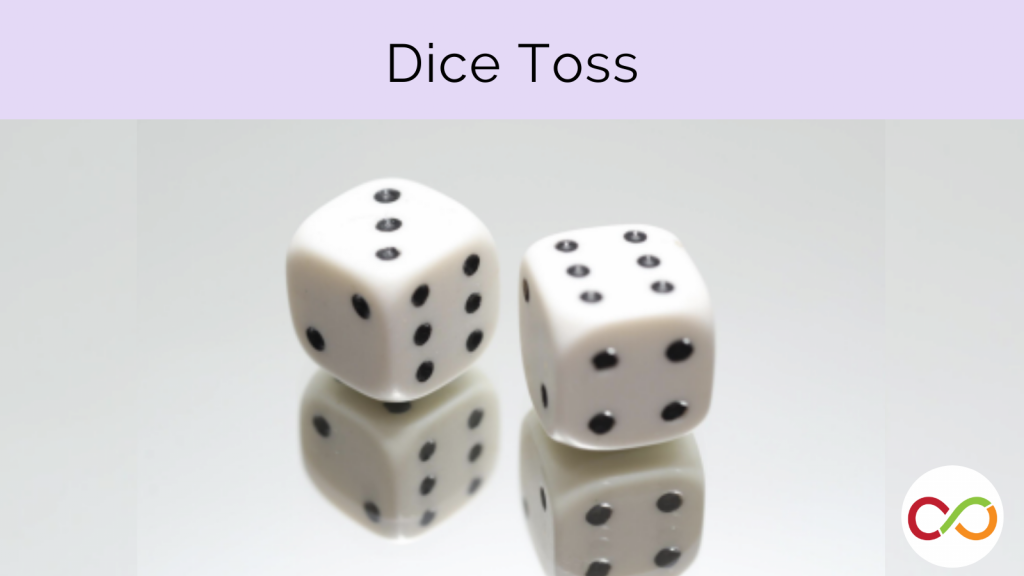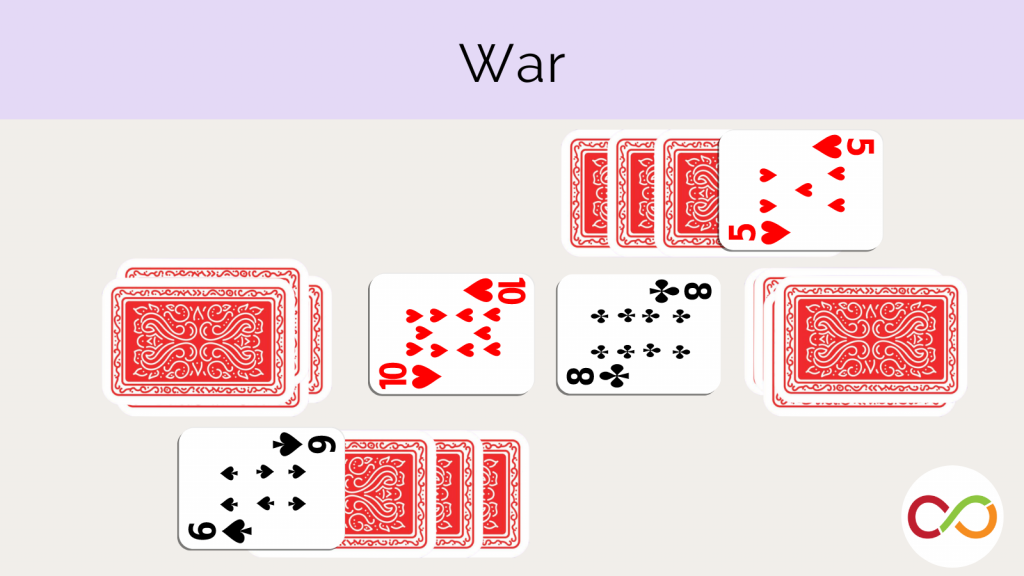Dice War
Early Years/Primary (Age 3 – 9)
Curriculum Goal
Kindergarten: Demonstrating Literacy and Mathematics Behaviour
- Collect, organize, display, and interpret data to solve problems and to communicate information, and explore the concept of probability in everyday contexts (#19).
Materials
- 2-4 students sit together on the carpet or at desks
- Students should have previous experience with number magnitude
Lesson
- The objective of the game is for one player to win all dice in play.
To begin, provide each player with 10 dice
Each player selects one die to roll. Players simultaneously roll their selected die.
The player with the highest roll takes all played dice and adds them to their dice pile.
When two players have rolled their die and have the same highest number, a war is launched. The two players engaging in the war, roll their dice again and the player with the highest number wins all the dice in play.
The game ends when one player has all the dice.
Look Fors
- Do the children know the magnitude of their numbers on the cards?
Can children read symbolic numbers?
What strategies do the children implement to determine the number’s magnitude?
Can children easily determine which number is larger?
Extension
- Player with the smaller number wins each round.
- Addition War, Subtraction War, Multiplication War, etc. Players roll two dice each round. Players with the largest sum (or difference, or product) takes all.
Share this lesson
Share on facebook
Share on twitter
Share on email


